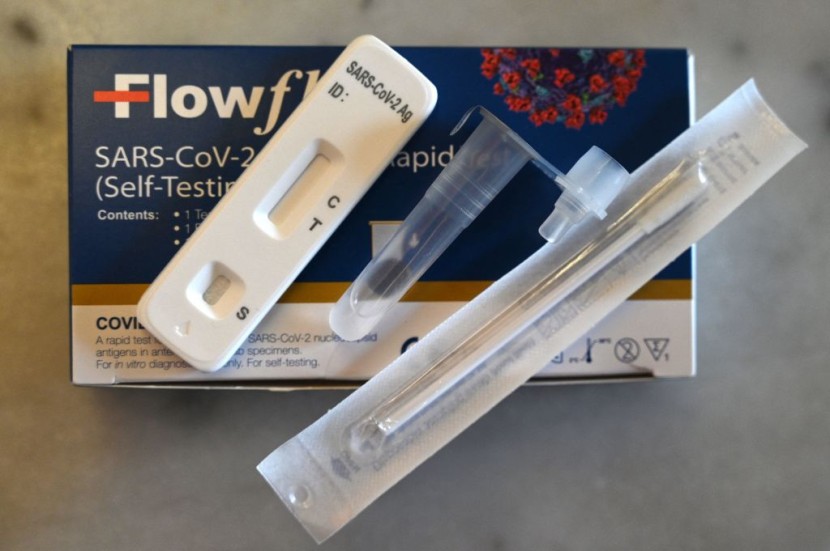
The National Poison Control Center cautioned those using an at-home rapid test kit for COVID-19 might not be safe to use. A warning came from a toxic substance that could adversely affect children and adults from the kit.
Based on a blog on the Cincinnati Drug and Poison Information Center responsible for it. The National Poison Control Center (NPCC) published a warning as well.
At-Home Rapid Test Kits Found With Toxins
The NPCC mentioned that a component in the kit called sodium azide found in the extraction vial, used as a preservative agent, is harmful. Several kits like BinaxNow, BD Veritor, Flowflex, and Celltrion DiaTrust COVID-19 quick test kits have it, reported the Epoch Times.
These kits were found to have sodium azide in all of them hence the warning for its use, noted the National Capital Poison Center.
The unsafe chemical has no smell or color to it. This liquid is where cotton swabs are dipped into before being used for swabbing. Sodium azide is usually used for herbicides, controlling pests, and car airbags.
Health Canada forwarded an advisory on how it can lower blood pressure even in small doses, but larger amounts would cause more severe effects.
ProClin adds that more than one component chemical could cause eye and skin irritations, including allergic reactions. Some hospitals have had calls complaining of symptoms caused by sodium azide in the US.
Sheila Goertemoeller, a pharmacist and clinical toxicologist for a Children's hospital, said that the effects caused by the exposures were recorded by early November. The National Poison Control Center said many people of all ages were affected using the at-home rapid tests kit.
She added that it worried her that young children get affected by it.
Proper Use of Test Kit Could Avoid Exposure to Toxins
Another doctor, Kelly Johnson-Arbor, connected to the National Capital Poison Center in Washington, spoke to WNEP about the concern during the weekend.
One of the common mistakes is that it is thought to be eyedrops most of the time. Kinds would drop rub on their skin, and adults would put it in their eyes as eyes. The doctor added that exposing it to anyone's skin results in allergies or a very bad skin rash.
Another danger that can happen is someone might ingest the chemical by accident. If it happens, better contact the PCC, as ingesting the liquid with several components could be harmful. Both non-toxic and dangerous chemicals ingested might need medical care.
The official spoke to an outlet about the test kits, which they should dispose properly of because accidental ingestion happens if someone will not follow how to use them properly.
Officials reminded consumers that the test kits are not dangerous if someone knows how to use them appropriately.
Dr. Jeffrey Jahre, a St. Luke's University Health Network, reminded users of these test kits to dispose of as instructed to avoid further problems.
Anyone might ingest the sodium azide, touch them and put it in the eyes, and rub it on the skin, which could cause a rash, all of the above are harmful.
If there is eye exposure, just rinse for 15 to 20 minutes using warm water. For skin exposure, just wash the skin with tap water, and it's all good. Call the PCC's online tool or at 1-800-222-1222 for more help in case of accidental ingestion.
Take note that the Poison Control Center says at-home rapid test kits should be used only for what they are purposed, and the contents are not for any other uses, reminded authorities.
Related Article : Scientists Engineer Synthetic Coronavirus To Study SARS-CoV-2 Innate Mechanisms Better To Devise Countermeasures
© 2026 HNGN, All rights reserved. Do not reproduce without permission.








